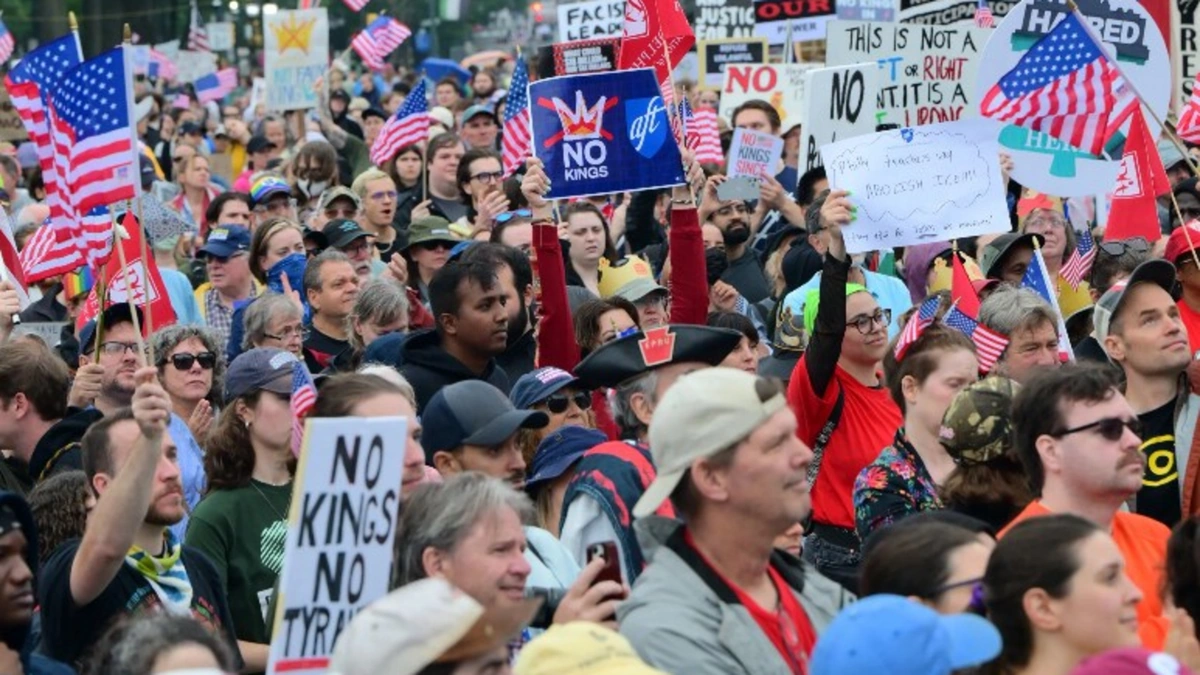Here’s the thing: when you see a political party slap a label like “un-American” on a protest, it’s not just name-calling. It’s a strategic play. The GOP’s recent branding of Anti-Trump Protests as un-American is a prime example. Let’s dive into why this matters, especially in the context of today’s hyper-polarized political landscape.
The Underlying Strategy | Why Now?

So, why are they doing this now ? I initially thought it was just a knee-jerk reaction, but then I realized there’s a lot more to it. It’s about controlling the narrative. By framing dissent as unpatriotic, they aim to:
- Mobilize their base: Nothing rallies the troops like an external enemy – in this case, anyone criticizing Trump.
- Dampen opposition: Make potential protesters think twice before speaking out, fearing social stigma.
- Distract from policy: Shift the focus from substantive issues to emotional appeals.
And, let’s be honest, it’s a tried-and-true tactic. But does it work? That’s the million-dollar question.
The Echo Chamber Effect and Misinformation
We live in an age of echo chambers, don’t we? News consumption is so tailored that confirmation bias is the norm, not the exception. This “un-American” label will resonate deeply within certain online communities, amplifying existing biases and spreading misinformation about the nature of these protests. According to the Wikipedia article on Echo Chambers, this creates an environment where facts are secondary to loyalty.
But it’s not just about the echo chambers; it’s about the speed at which disinformation spreads. A cleverly crafted meme or a misleading video clip can reach millions in a matter of hours. The challenge is countering this deluge of information with well-researched, nuanced analysis.
Impact on Public Discourse and Political Division
The ramifications of labeling dissent as un-American are profound. It creates a climate of fear, where people are less likely to voice their opinions, especially if those opinions challenge the status quo. This, in turn, stifles public discourse and exacerbates political divisions. A common mistake I see people make is assuming that everyone is willing to engage in respectful debate. But the reality is, many are simply looking for validation of their existing beliefs. And labels like “un-American” provide that validation, reinforcing tribalism and hindering meaningful dialogue. So, how do we break free from this cycle?
Combating Misinformation and Promoting Civil Discourse
Well, here’s the thing: it starts with education. We need to teach critical thinking skills, media literacy, and the importance of civil discourse. We need to encourage people to seek out diverse perspectives and engage in respectful debate, even when they disagree. And – this is crucial – we need to hold our political leaders accountable for their words and actions.
Remember, dissent is not un-American; it is the cornerstone of a healthy democracy. As per the guidelines mentioned in the information bulletin, protecting this right is paramount. The one thing you absolutely must double-check is that you are not letting yourself be fooled by misinformation.
What fascinates me is how easily people are swayed by emotionally charged rhetoric. It’s a testament to the power of propaganda and the importance of remaining vigilant in the face of manipulation. But, with education and critical thinking, we can resist these tactics and foster a more informed and engaged citizenry. Check this article.
FAQ Section
Frequently Asked Questions
What exactly does “un-American” even mean?
It’s a loaded term often used to delegitimize opposing views by implying they are disloyal or against the country’s core values. It’s subjective and often used for political gain.
How can I identify misinformation online?
Check the source’s credibility, look for factual errors, and be wary of emotionally charged headlines. Cross-reference information from multiple sources.
What if I disagree with someone’s political views?
Engage in respectful dialogue, focusing on the issues rather than personal attacks. Listen actively and try to understand their perspective.
Is it my responsibility to correct misinformation online?
While it’s not mandatory, correcting misinformation can help promote a more informed public discourse. Do so respectfully and provide credible sources.
According to the latest circular, it is important to know and share the correct information.
In conclusion, the GOP’s branding of Anti-Trump protests as un-American is a calculated move with potentially far-reaching consequences. By understanding the underlying strategy, recognizing the power of echo chambers, and promoting civil discourse, we can resist these tactics and safeguard our democracy.




